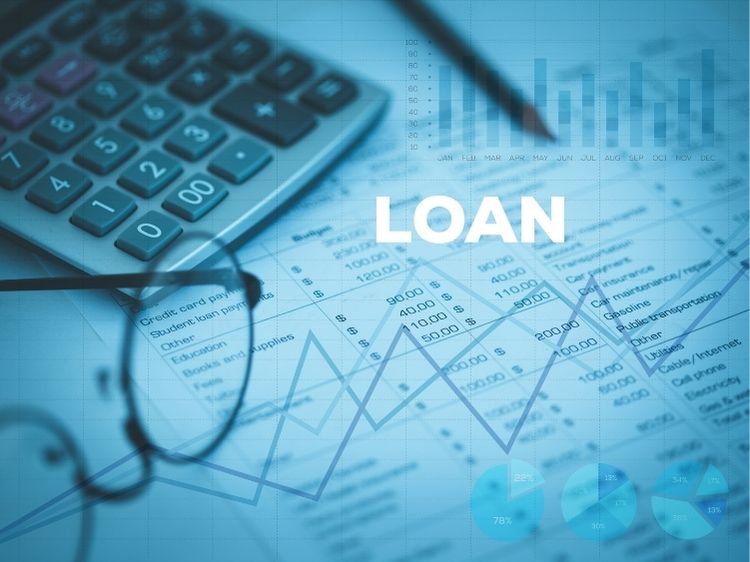If you’re a small business owner in search of funding, you’ve probably come across the term SBA loan. But what exactly is it? And how can it help your business grow? In this detailed guide, we’ll cover everything you need to know about SBA loans, their benefits, how to apply, and much more. Let’s dive in!
What Is an SBA Loan?
An SBA loan is a government-backed loan designed to help small businesses secure financing with favorable terms. The U.S. Small Business Administration (SBA) doesn’t directly lend the money. Instead, it works with participating lenders, such as banks and credit unions, to provide loans to small business owners. The SBA guarantees a portion of the loan, reducing the risk for lenders and making it easier for small businesses to get approved.
Types of SBA Loans
The SBA offers several loan programs to meet the needs of different businesses. Here’s a breakdown of the most common types:
1. SBA 7(a) Loan Program
The SBA 7(a) loan is the most popular option and can be used for various purposes, such as working capital, equipment purchases, or even refinancing existing debt. It’s a versatile choice for small businesses seeking funding.
2. SBA 504 Loan Program
The 504 loan is designed for businesses looking to invest in long-term, fixed assets like real estate or machinery. If you’re planning to buy a building or upgrade your equipment, this loan might be ideal.
3. SBA Microloans
Need a smaller loan? The SBA Microloan program offers loans up to $50,000 to help startups and smaller businesses cover their short-term needs. Whether it’s purchasing inventory or launching a new marketing campaign, microloans can give you that needed boost.
4. SBA Disaster Loans
If your business has been impacted by a natural disaster, SBA disaster loans can provide vital financial support. These loans offer low-interest financing to help businesses recover from physical or economic damage.
The Benefits of SBA Loans
Why should you consider applying for an SBA loan? There are several key benefits that make them a popular option for small business owners:
- Lower Interest Rates: SBA loans typically have lower interest rates compared to traditional loans. This can save your business thousands of dollars over the life of the loan.
- Flexible Terms: With repayment terms ranging from 5 to 25 years, you can choose a loan term that fits your business’s cash flow.
- Access to Larger Loans: Because the SBA guarantees a portion of the loan, lenders are more willing to provide larger amounts, which is ideal if your business has big growth plans.
- Lower Down Payments: SBA loans often require smaller down payments, making it easier to access funding without a huge initial financial burden.
How to Apply for an SBA Loan
Applying for an SBA loan isn’t as intimidating as it may seem, but it does require preparation. Here’s a step-by-step guide to get you started:
1. Determine Your Loan Needs
Before applying, you’ll want to know exactly how much funding you need and how you plan to use it. Whether it’s for working capital, expansion, or buying equipment, having a clear goal will help you choose the right SBA loan program.
2. Gather Documentation
Lenders will need detailed financial information about your business. Be prepared to provide:
- Tax returns
- Financial statements (profit & loss, balance sheet)
- A business plan
- Personal and business credit scores
- Legal documents (business licenses, permits)
3. Find an SBA-Approved Lender
Not all lenders offer SBA loans. The SBA’s website has a lender match tool that can help you find a qualified lender in your area.
4. Submit Your Application
Once you’ve gathered all the necessary documents, submit your application to your chosen lender. They’ll review your financials, and if everything checks out, they’ll submit the loan to the SBA for approval.
5. Approval and Funding
The approval process can take several weeks, depending on the complexity of the loan. Once approved, the funds will be disbursed, and you can begin using the loan for your business needs.
Eligibility Requirements for SBA Loans
While SBA loans are more accessible than traditional business loans, they still come with specific requirements. Here’s what you’ll typically need to qualify:
- Business Size: The SBA has size standards that determine whether your business qualifies as “small.” This varies by industry but generally includes a maximum number of employees or annual revenue limits.
- Credit Score: While there’s no set minimum, most lenders prefer a personal credit score of at least 680.
- Time in Business: Most SBA loans require your business to be operational for at least two years, though exceptions exist for startups.
- Business Plan: A solid business plan outlining your goals, revenue projections, and strategy is crucial.
- Collateral: Some SBA loans may require collateral, especially for larger amounts.
Common Uses for SBA Loans
SBA loans can be used for a wide range of business purposes. Here are some common ways businesses take advantage of this financing:
- Working Capital: Cover day-to-day expenses like payroll, rent, or utilities.
- Equipment Purchases: Invest in machinery, technology, or vehicles to support business operations.
- Real Estate: Buy or renovate commercial property.
- Debt Refinancing: Consolidate higher-interest loans into a lower-interest SBA loan to reduce monthly payments.
- Business Expansion: Open new locations, hire additional staff, or increase inventory.
FAQs About SBA Loans
- What is the interest rate on an SBA loan? Interest rates on SBA loans vary depending on the type of loan and your lender. However, they’re generally lower than traditional business loans, often falling between 5% to 9%.
- Can I get an SBA loan if my credit score is low? While most lenders prefer a credit score of at least 680, some may consider lower scores if you have strong financials or collateral. Improving your credit score before applying can increase your chances of approval.
- How long does it take to get an SBA loan? The timeline varies, but the application and approval process can take anywhere from a few weeks to several months, depending on the complexity of your loan and lender.
- Do I need a business plan for an SBA loan? Yes, a business plan is typically required for SBA loans. It helps demonstrate how the loan will benefit your business and assures the lender that you’ve thought through your strategy.
- Can startups apply for SBA loans? Yes, but it can be more challenging for startups to qualify for SBA loans. SBA microloans are a good option for newer businesses needing smaller amounts of capital.
Conclusion
An SBA loan could be a game-changer for your business, providing you with the capital needed to grow, invest, or overcome financial hurdles. With lower interest rates, flexible terms, and the support of a government guarantee, SBA loans offer one of the best financing options for small business owners.
Before applying, make sure you have a clear plan for how you’ll use the funds, prepare your financial documents, and choose the right SBA loan program for your needs. By doing your homework and being prepared, you can boost your chances of approval and take your business to the next level.




